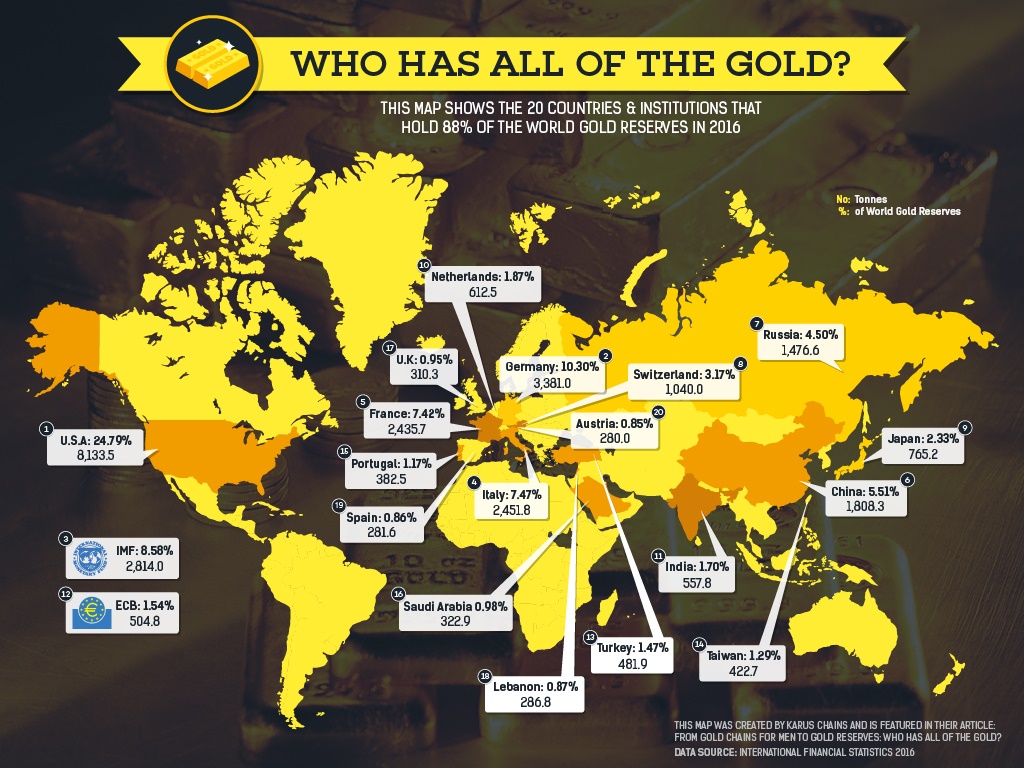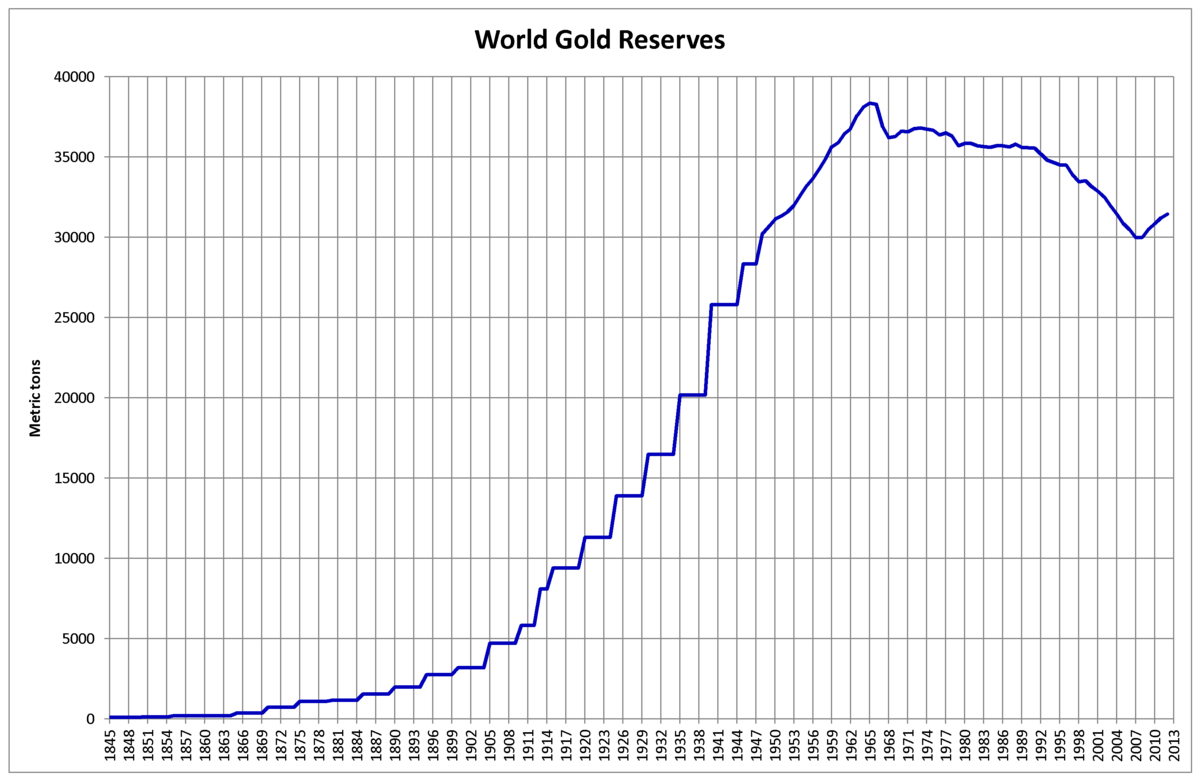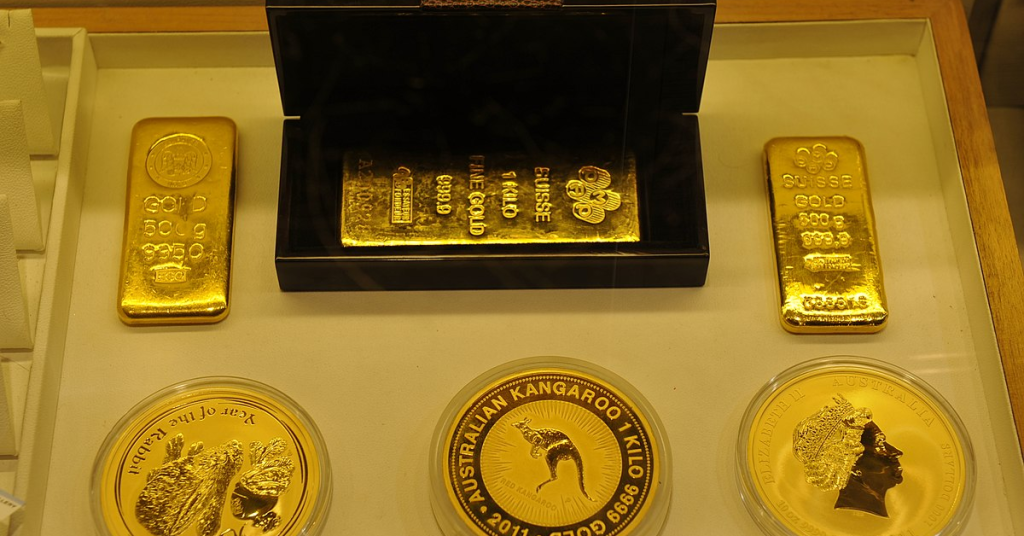Summary
- The top 10 gold reserve countries of 2023 are the United States, Germany, Italy, France, Russia, China, Switzerland, Japan, India, and the Netherlands.
- Gold reserves are an important asset for central banks and governments, providing a store of value and protection against economic uncertainties.
- The International Monetary Fund (IMF) and official holdings also hold significant amounts of gold, serving as global custodians and providing liquidity to member countries.
- Gold remains relevant in times of conflict, as it is seen as a safe haven asset and a store of value that provides stability during political and economic turmoil.
Welcome to the dazzling world of gold reserves! In this article, we will take you on a captivating journey to unveil the Top 10 Gold Reserve Countries of 2023. Brace yourself as we explore the nations that possess the golden treasures that have captivated humanity for centuries. Get ready to discover the glittering powerhouses that hold the key to economic stability and prosperity. Join us as we uncover the hidden vaults and delve into the fascinating realm of gold reserves!
We’ve dedicated hundreds of hours to researching the top precious metals investment companies, perfect for anyone looking to invest!
>> Click Here to See Our Top 5 Companies List <<
Gold Reserves by Country

| Rank | Country | Gold Reserves (in metric tons) |
|---|---|---|
| 1 | United States | 8,133.5 |
| 2 | Germany | 3,369.7 |
| 3 | Italy | 2,451.8 |
| 4 | France | 2,436.1 |
| 5 | Russia | 2,299.9 |
| 6 | China | 1,948.3 |
| 7 | Switzerland | 1,040.0 |
| 8 | Japan | 765.2 |
| 9 | India | 686.8 |
| 10 | Netherlands | 612.5 |
Historical Gold Reserve Data

| Rank | Country | Gold Reserves (Tonnes) |
|---|---|---|
| 1 | United States | 8,133.5 |
| 2 | Germany | 3,366.8 |
| 3 | Italy | 2,451.8 |
| 4 | France | 2,436.0 |
| 5 | Russia | 2,295.4 |
| 6 | China | 1,948.3 |
| 7 | Switzerland | 1,040.0 |
| 8 | Japan | 765.2 |
| 9 | Netherlands | 612.5 |
| 10 | India | 598.4 |

IMF and Official Holdings
The International Monetary Fund (IMF) and official holdings play a crucial role in the top 10 gold reserve countries for 2023. These countries, including the United Kingdom, Belgium, France, and Azerbaijan, hold significant amounts of gold as part of their official reserves. The IMF also holds a substantial amount of gold, serving as a global custodian and providing liquidity to member countries. These gold reserves are valued based on their weight in **tonnes** and are an important asset for central banks and governments. They provide a store of value and can be used as a hedge against currency fluctuations and economic uncertainties.
Gold holdings are regularly audited to ensure accuracy and accountability.
Gold’s Relevance in Conflict

Gold has long been recognized for its relevance in times of conflict. In the midst of political and economic turmoil, countries often turn to gold as a safe haven asset and a store of value. Its value remains stable even when fiat currencies fluctuate in value.
During World War I, the German occupation of Belgium led to the transfer of a significant amount of gold reserves to the Bank of England for safekeeping. Similarly, during World War II, countries like Vichy France and Senegal sent their gold reserves to the Bank of France in Dakar to protect them from Nazi Germany.
Gold continues to be a valuable asset for countries today, with many central banks holding substantial gold reserves. These reserves serve as a vital component of a country’s balance sheet and provide a sense of security during times of uncertainty.
In 2023, the top 10 gold reserve countries are expected to include the United Kingdom, Belgium, and Azerbaijan, among others. These countries recognize the importance of diversifying their assets and maintaining a strong gold reserve to safeguard their economies.
Gold IRA: Should You Open One To Save For Retirement?
